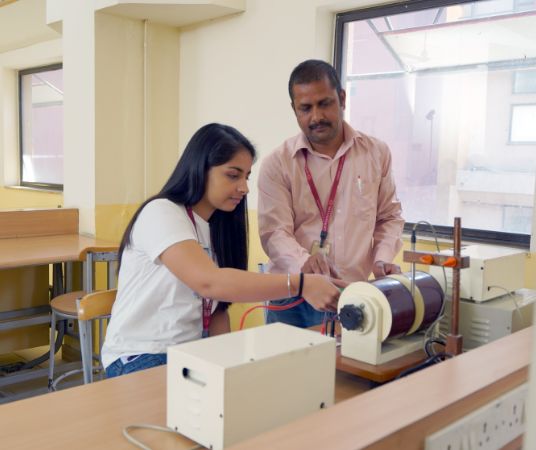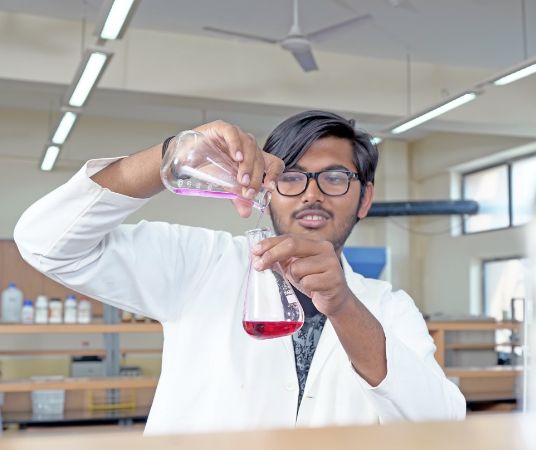PhD Programme in Mathematics and Basic Sciences
NIIT University (NU) offers a rigorous and research-intensive PhD programme in Mathematics and Basic Sciences, with specializations in Mathematics, Physics, and Chemistry. Designed to cultivate deep domain expertise and foster original research, the programme provides scholars with an interdisciplinary environment, expert mentorship, and access to cutting-edge resources
Mathematics
The doctoral programme in Mathematics at NU offers opportunities for advanced research leading to a PhD in Applied Mathematics and Statistics. The programme emphasizes both theoretical foundations and real-world applications, preparing scholars to address complex problems across academia, industry, and research institutions.
Area of research
Our research spans a broad spectrum of modern and applied mathematical disciplines, including but not limited to:
Applied Mathematics
- Computational Fluid Dynamics
- Heat and Mass Transfer
- Mathematical Biology
- Dynamical Systems and Bifurcation Theory
- Graph Theory (Complex Networks, Graph Partitions)
- Optimization
- Computational Mathematics
- Mathematical Programming and Duality Theory
- Optimization with Uncertain Data
- Robust Optimization
Statistics and Probability
- Mathematical Statistics
- Applied Probability & Statistical Modelling
- Order Statistics
- Stochastic Orders
- Statistical Inference
- Reliability Theory & Stochastic Processes
Physics
NU’s PhD Programme in Physics focuses on the scientific themes of Basic and Applied Physics. Major research within this interdisciplinary programme combines the exploration of physical and chemical properties of solids and liquids up to the molecular level. In addition, this research stream is also designed to shed light on the correlated interactions between solvate molecules and the solvent water.
Areas of Research
The proposed research is mainly devoted to the exploration of various solute induced hydration effects by combing an experimental and theoretical approach broadly incorporating
- IR/Terahertz/UV-Vis/Raman/NIR spectroscopic techniques
- Solvation mechanism of various alkali, alkali-earth, lanthanide and transition metal ions
- Hydrogen bond dynamics of solids and liquids in the aqueous phase
Chemistry
The PhD Programme in Chemistry at NU fosters innovation in the design, synthesis, and application of functional materials at the molecular and nanoscale levels. With a strong emphasis on interdisciplinary research, the programme integrates advanced experimental techniques and theoretical insights to address pressing challenges in sensing, catalysis, and energy conversion. Scholars will have the opportunity to explore the frontiers of nanomaterials, metal-organic frameworks (MOFs), and optically active systems under expert guidance.
Areas of research
The proposed research mainly aims to explore the synthesis of functional nanomaterials and demonstrate their application in sensing and catalysis.
- Synthesis of various nanomaterial, MOF, and their nanocomposites
- Application in optical sensing
- Application in CO2 conversion
- Application in other catalytic reaction
- Optical activity in inorganic metal oxide systems
Academic facilities
Physics lab

Chemistry lab



